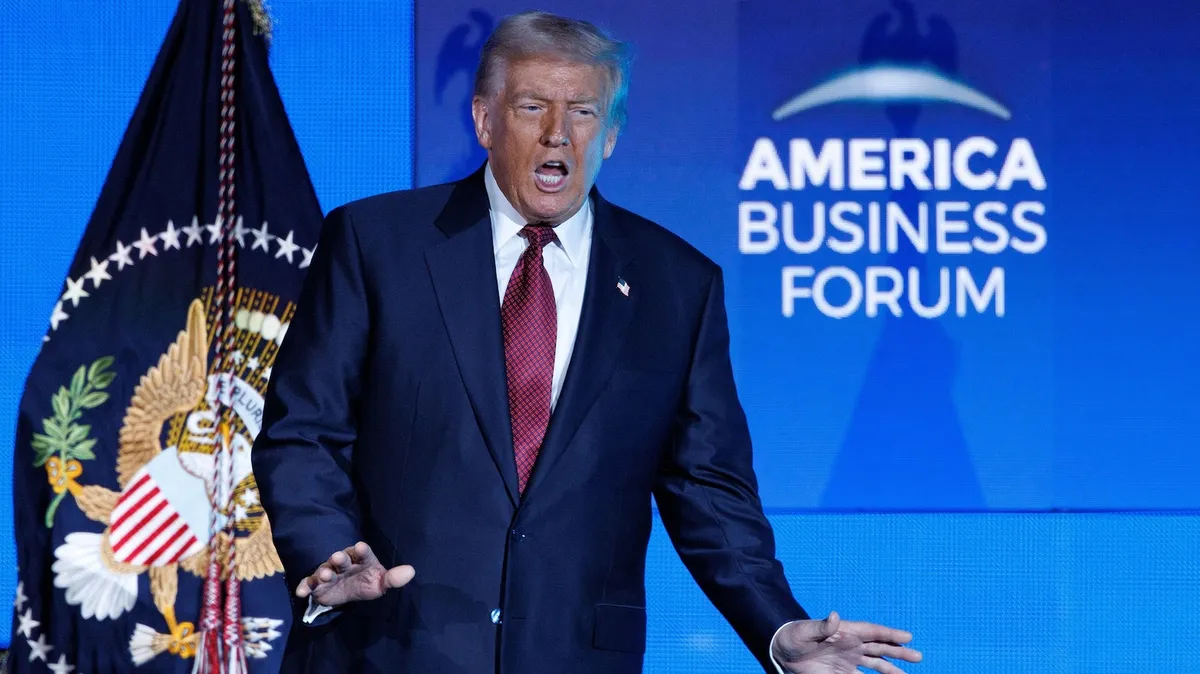
If the Supreme Court determines that President Donald Trump's extensive tariffs are illegal, customs officials might face the monumental task of refunding over $90 billion in tariff revenue already collected. Legal experts shared insights with ABC News, indicating that this refund process could inject a significant amount of cash into businesses, although consumers are unlikely to benefit directly from these refunds. According to Ernie Tedeschi, a nonresident senior fellow at The Budget Lab at Yale, it is important for consumers to understand that these refunds are directed to businesses, not to individuals.
In what could be one of the most pivotal legal cases for Trump's administration, the Supreme Court exhibited skepticism on Wednesday towards the president's claim of unlimited tariff authority. Though some justices hinted at a willingness to grant the president some degree of flexibility concerning foreign trade, the overall atmosphere indicated doubt regarding the broader implications of his tariff policies. Justice Amy Coney Barrett raised concerns during a discussion with Neal Katyal, a lawyer representing the small business owners involved in the case, suggesting that the reimbursement process could become chaotic.
The refund process, contingent on the Supreme Court's ruling, could be hindered by bureaucratic red tape, delays, or restrictions tailored to specific businesses. Legal experts expressed apprehension that a convoluted refund process might disproportionately affect small businesses. Matt Lapin, an attorney at the law firm Wiley Rein specializing in international trade, highlighted that the Supreme Court might draw from past cases to guide the refund process. However, he noted that the court is not obligated to establish a standardized procedure or offer recommendations.
Lapin referenced a 1998 Supreme Court decision that deemed certain harbor maintenance taxes unconstitutional, which led to the U.S. Customs and Border Protection agency creating a structured claim filing process. This process required proof of import activities and payment of duties to obtain refunds. He cautioned that the volume of claims stemming from Trump's tariffs could be significantly higher than those seen in the past, suggesting that businesses should manage their expectations regarding the potential refund timeline.
Another approach to consider could be the policy followed in 2006, when the United States and Canada resolved a long-standing dispute over lumber imports. Alan Wolff, a senior fellow at the Peterson Institute for International Economics, explained that in this instance, the U.S. Treasury distributed $1 billion to private businesses as part of the settlement. Half of the funds were disbursed directly to the companies involved, while the remainder was allocated to a market development fund to enhance lumber usage. Wolff cautioned, however, that the unique characteristics of Trump's tariffs might necessitate an equally unprecedented resolution if they are deemed unlawful.
Complicating the refund process further is a potential legal battle that may arise following the Supreme Court's ruling. Wolff noted that the federal circuit has returned to the Court of International Trade to clarify whether businesses must have filed lawsuits to qualify for refunds. The Court of Appeals for the Federal Circuit previously upheld a lower court's ruling deeming the tariffs unlawful, but it remains unclear whether the Court of International Trade's decision would apply universally to all impacted businesses or solely to the original plaintiffs.
According to Jennifer Hillman, a Professor of Practice at Georgetown University Law Center, the Trump administration could potentially complicate the claims process to deter refund requests. "They can make the process really ugly," she remarked, suggesting that the administration might deny claims to push businesses towards litigation, a costly endeavor for many small operators. The ambiguity in the Supreme Court's guidance could ease the Trump administration's ability to complicate the refund process further.
Oliver Dunford, a senior attorney with the Pacific Legal Foundation, echoed these sentiments, expressing concern that a complicated refund mechanism could pose challenges for smaller businesses lacking the resources to navigate the claims process. He emphasized that larger corporations can more easily manage these regulatory challenges, while small businesses may struggle significantly more with the associated costs and complexities.